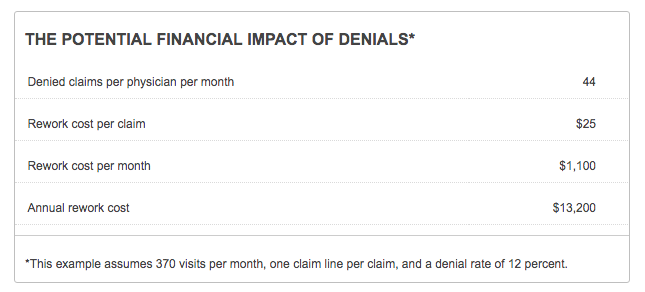 On December 15, 2015, Jason Adam Townsend, owner of a medical billing company, was indicted on healthcare fraud and aggravated identity theft charges by the Charlotte Grand Jury.
On December 15, 2015, Jason Adam Townsend, owner of a medical billing company, was indicted on healthcare fraud and aggravated identity theft charges by the Charlotte Grand Jury.
Don't fall victim to these fraudulent medical billing companies. Know how you can select a reliable medical billing company for your medical billing needs.
When looking for a medical billing company, it is important to consider the following factors:
1. Service Level of the Medical Billing Provider
What are the services provided by your medical billing company? Does this include:
- Pursuing denied claims
- Billing follow-up
- Complying with industry regulations
- Reporting and analysis
Ensure you discuss these matters with the company before signing up for any of their packages. Doing so will confirm if they are the right service provider for you.
2. Years of Experience in the Industry
How long has the medical billing service provider been in the industry? On what medical specialties do they focus?
These are important questions to consider when choosing a medical billing service provider because it shows if they are knowledgeable in the following areas:
- Current medical coding system and medical terminology
- Insurance claims and billing, which includes the appeals and denial process, as well as fraud and abuse detection
- Information and web technology
- Reimbursement practices
3. Knowledge with the Use of Technology
One of the aims of medical billing is to accomplish more tasks with less time. This is done through the use of sophisticated billing software. But, it does not mean having to work on an entirely new system altogether.
While most medical billing companies have their own billing system, very few have the capacity to work with the existing system used by an organization. Thus, you are forced to migrate your data into their own. However, this makes the transition process longer and more complicated.
Rather than migrate your data into a new one, you may prefer a medical billing company like ClaimCare that can work in your current billing system. In this manner, you don't have to worry about your data being transferred into a new system.
Thus, it is important to ask them the following questions:
- Are they willing to work in your current system?
- How knowledgeable are they with other billing systems?
- How long will it take to integrate with your billing system?
4. Security and Compliance
According to the National Healthcare Anti-Fraud Association NHAA, approximately tens of billions of dollars are lost to health care fraud. This makes it one of the most challenging problems among medical providers.
Avoid being a victim. Carefully select your medical billing company by inquiring if they perform one or more of the following safety precautions:
- Annual background checks on their employees
- Monthly annual checks with the OIG for excluded employees
- Anonymous methods on how to report employee violations
- Health Insurance Portability and Accountability Act (HIPAA) training
- Dedicated compliance officer to ensure your data remains protected
This will help you assess how much these medical billing companies value the confidentiality of all your records.
5. Medical Billing Service Efficiency
Check the performance of the medical billing companies you’re considering. Identify how much of the denied claims and fee collection they are able to deliver by asking for the following data:
- How many of their current clients match your specialization?
- How many claims do they process each year?
It is also helpful to know the following information:
- Percentage of reduced payment delays
- Increased revenues they deliver to their existing clients
- Average number of days in A/R by specialty percentage
Utilize all of this information when choosing a medical billing company. Remain updated with the current medical billing trends and issues. Subscribe to our blog or call us at (855) 376-7631 for any of your medical billing concerns.
About Claimcare
ClaimCare has more than 25 years of experience in medical billing. It has a proven track record of increased customer collection reaching all the way up to 25% (the average increase is approximately 5%) and days in AR under 40 for your collectibles.

 Some of the crucial elements in the medical claims process happen during the medical coding and medical billing procedures.
Some of the crucial elements in the medical claims process happen during the medical coding and medical billing procedures. Is your in-house medical billing costing more than you can handle? How is this compromising your organization's efficiency?
Is your in-house medical billing costing more than you can handle? How is this compromising your organization's efficiency? Beckers Hospital Review
Beckers Hospital Review Last July, the Centers for Medicare and Medicaid Services (CMS) released a proposed payment rule for the Ambulatory Surgery Center Association (ASCA) and Hospital Outpatient Departments (HOPDs) for 2019. These updates address several long-requested ASCA priorities, which include the following:
Last July, the Centers for Medicare and Medicaid Services (CMS) released a proposed payment rule for the Ambulatory Surgery Center Association (ASCA) and Hospital Outpatient Departments (HOPDs) for 2019. These updates address several long-requested ASCA priorities, which include the following: Denial of claim is defined in the
Denial of claim is defined in the 
.jpg?width=300&name=Final-puzzle-piece%20(003).jpg) We recently discovered that a new client had just hired an office worker who had a good knowledge of general billing but no experience whatsoever with medical billing. This posed a problem that we solved by meeting with the office worker and explaining some medical billing specifics.
We recently discovered that a new client had just hired an office worker who had a good knowledge of general billing but no experience whatsoever with medical billing. This posed a problem that we solved by meeting with the office worker and explaining some medical billing specifics. In dealing with the complexity of the medical credentialing process, some healthcare providers still rely on spreadsheets, checklists, and makeshift programs without an expert to verify these entries. This results in several enrollment errors and delays.
In dealing with the complexity of the medical credentialing process, some healthcare providers still rely on spreadsheets, checklists, and makeshift programs without an expert to verify these entries. This results in several enrollment errors and delays. "Approximately 98% of hospital leaders are determining whether to work with third-party vendors for cost-efficiencies in both clinical and nonclinical functions and allowing hospitals to focus on value-based programming."
"Approximately 98% of hospital leaders are determining whether to work with third-party vendors for cost-efficiencies in both clinical and nonclinical functions and allowing hospitals to focus on value-based programming." According to a Healthcare & Business Technology report regarding medical billing, almost $125 billion in uncollected revenue happens each year due to:
According to a Healthcare & Business Technology report regarding medical billing, almost $125 billion in uncollected revenue happens each year due to: